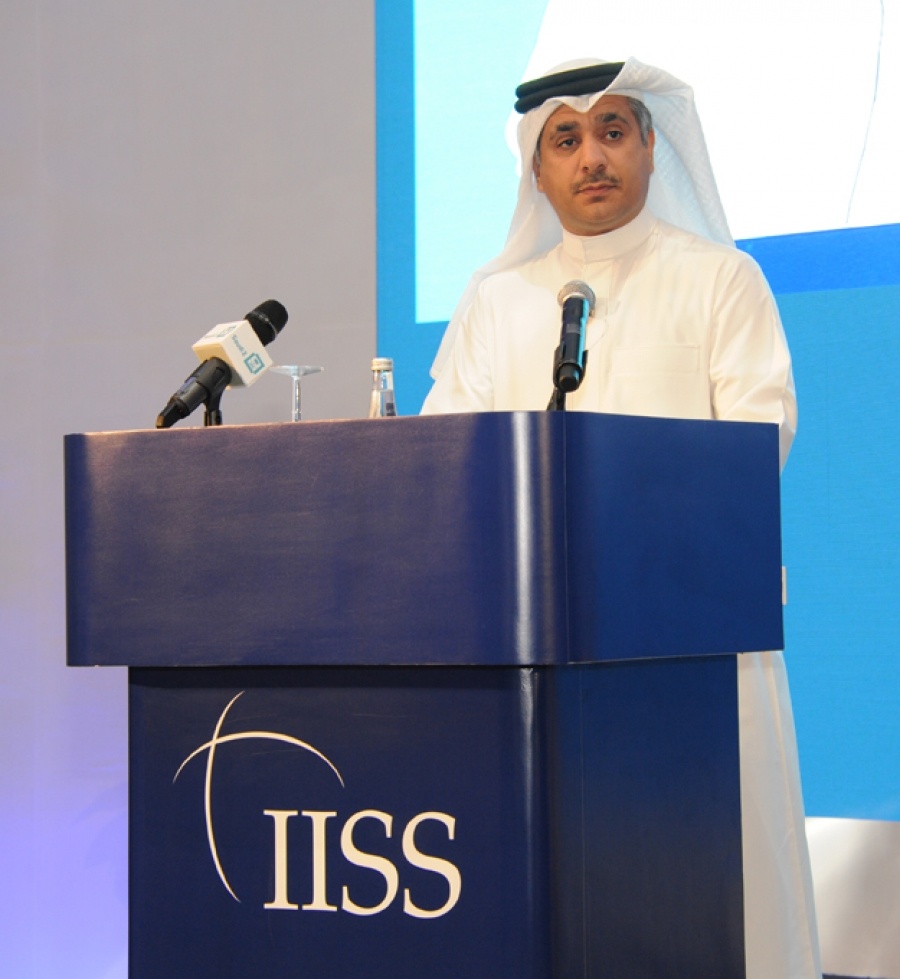
September 08, 2014
Manama, Economic Development Board, 8th September 2014: During a welcome speech at the International Institute for Strategic Studies’ (IISS) ‘Business Opportunity and Political Risk in the Gulf and Middle East’ conference, H.E. Kamal bin Ahmed, Minister of Transportation and Acting Chief Executive of the EDB, discussed the current status of the GCC economies and the priorities in order to ensure the prosperity that has been created is not squandered.
He opened his remarks by noting that while most attention recently has understandably been on political events in the broader Middle East, what has perhaps been less noticed is that the GCC is in a very enviable position in comparison to most economies. He highlighted that the GCC has arguably the strongest fundamentals of any region in the world, including strong, resilient economic growth; sustainable public finances and household balance sheets; current account surpluses; strong government revenues from hydrocarbons; and bright prospects for future growth as those revenues are invested in projects aimed at spurring economic diversification.
He continued by stating that whilst the strong oil price over recent years has helped drive this growth, what has perhaps been less acknowledged is that the GCC countries are now seeing the fruits of the hard work of reform, which has meant that better use is being made of the resources.
The Minister focused on key areas, including the steps being taken to increase productivity, support education and training and drive job creation; the investment in key infrastructure activities that have made the region a key point on global trade routes and created a strong foundation for regional integration; and the growth of key sectors such as downstream industries like aluminium, plastics and petrochemicals, and service industries including financial services and tourism.
However, he cautioned against complacency, stating that the region can’t look back on the current prosperity in thirty years time as a short-lived golden age. In order to achieve this, he stated that the priorities are to continue to invest in the infrastructure and frameworks that will enable different industries to thrive, and a continued focus on the education and the training that will give young people coming into the workforce the skills they need to take on the high quality jobs the economy creates.
Commenting on his address, H.E. Kamal bin Ahmed, Minister of Transportation and Acting Chief Executive of EDB, said: “As well as giving people an education, we also need to encourage the right attitude. I was delighted to read a recent survey by Ernst & Young that found that 70% of young Bahrainis were interested in the idea of starting their own business – that’s exactly the sort of attitude that we will need if we are to meet our aims.
“In turn, our goal must be to ensure a productive, innovative economy that generates ideas, products, and services locally and sells them to other markets. Only this can ultimately give us the foundation for sustainable private sector-led growth. The purpose of economic growth should be to create high quality jobs and opportunities for people in the region – to allow them to share in the nation’s prosperity and to ensure that that growth is sustainable in the long term.”
The ‘Business Opportunity and Political Risk in the Gulf and Middle East’ conference is part of the IISS Geo-economics and Strategy Programme, and brings together a diverse range of policymakers, experts, business executives and political leaders at the Sofitel Bahrain Zallaq Thalassa Sea and Spa.
The Middle East office of IISS opened in May 2010 in Manama. IISS-Middle East serves as a base for the Institute’s many research programmes and activities throughout the region. Headquartered in London, the IISS also has long-standing regional offices in Washington and Singapore.



